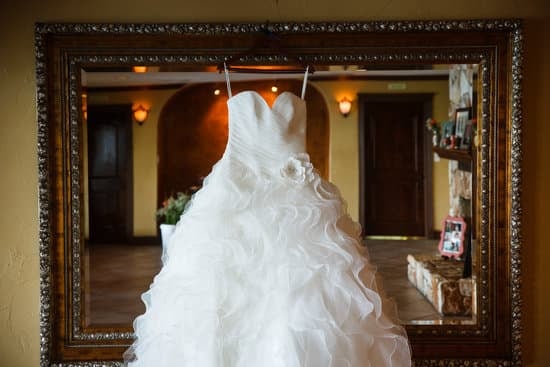Have you ever wondered how do you get ordained to perform a wedding? With the increasing popularity of non-religious ceremonies, many people are seeking ordination to officiate weddings for friends and family. Being ordained allows individuals to legally solemnize marriages in many states, providing a meaningful and personal touch to the special day. In this article, we will explore the significance of getting ordained, the different avenues available for ordination, and the legal requirements for officiating weddings.
The act of getting ordained holds significant importance for those who wish to play a direct role in uniting couples in marriage. It provides a way for couples to have a personalized and meaningful ceremony that reflects their beliefs and values.
Whether it’s a non-traditional location or a blend of cultural traditions, being ordained allows officiants to tailor the ceremony to fit the couple’s vision. This flexibility has made ordination an increasingly popular option for those seeking non-religious or secular wedding ceremonies.
With online ordination becoming more accessible, individuals can easily pursue ordination through recognized organizations. However, religious institutions such as churches, temples, and mosques also offer traditional pathways to becoming ordained. Regardless of the method chosen, being ordained comes with certain responsibilities and legal implications that vary from state to state. In the following sections, we will delve into these different avenues for ordination and outline the legal requirements for performing weddings as an ordained minister.
What Is Ordination
Ordination is the process of being formally consecrated or authorized to perform religious rites and ceremonies. This includes officiating weddings, funerals, baptisms, and other religious rituals. In the United States, ordination holds legal significance, as it grants individuals the authority to legally marry couples. However, it’s important to note that the legal implications of ordination can vary from state to state.
In some states, such as California and New York, online ordination is recognized as a valid credential for performing wedding ceremonies. This means that individuals who have obtained ordination through reputable online organizations have the legal right to officiate weddings. On the other hand, certain states may have specific requirements or restrictions for ordained ministers, so it’s crucial to research and understand the legal implications of ordination in your particular state.
It’s also worth noting that while religious ordination through established institutions like churches, temples, and mosques is universally recognized, non-religious or secular ordination for performing weddings has gained popularity in recent years. The flexibility and inclusivity of becoming ordained online have made it an attractive option for individuals who want to officiate ceremonies without affiliating with a specific religious organization.
Online Ordination
Getting ordained to perform a wedding has become increasingly popular, especially for those who want to officiate non-religious ceremonies. One of the most convenient ways to achieve this is through online ordination. This section will explore the process and requirements for getting ordained online through various recognized organizations.
Understanding Online Ordination
Online ordination allows individuals to become legally authorized to perform weddings without having to go through traditional religious institutions such as churches or temples. It provides a flexible and accessible option for those who want to officiate weddings in a secular or non-denominational manner.
The Process of Online Ordination
The process of getting ordained online typically involves filling out an application, completing any necessary coursework or training, and paying a fee. The specific requirements may vary depending on the organization offering the online ordination, but many reputable institutions provide a straightforward and user-friendly process.
Requirements for Online Ordination
The requirements for online ordination may include providing personal information, agreeing to a code of ethics, and demonstrating an understanding of the legal responsibilities associated with performing weddings. Some organizations may also require individuals to pass an exam or undergo a background check before they can be officially ordained to perform ceremonies. It’s important to research different online ordination options and choose a reputable organization that aligns with your values and beliefs when pursuing this path.
Religious Ordination
Getting ordained through traditional religious institutions such as churches, temples, and mosques is a deeply spiritual and time-honored process. Each religious institution has its own specific guidelines and requirements for ordination, so it’s important to understand the process before pursuing ordination through a specific faith tradition. The steps involved in becoming ordained vary widely between different religions and denominations.
For example, in Christianity, individuals seeking ordination as ministers or officiants may be required to complete formal education at a seminary or theological school. They may also need to undergo a period of mentorship or apprenticeship under the guidance of an experienced pastor or minister. Additionally, certain Christian denominations require candidates for ordination to pass oral and written examinations on topics such as theology, biblical interpretation, and church history.
In contrast, in the Islamic faith, the process of becoming ordained as an imam or officiant typically involves comprehensive knowledge of the Quran and other sacred texts, as well as proficiency in Arabic for recitation during religious services. Mosques may have their own unique set of additional requirements for ordination based on their particular Islamic tradition. Similar variations in requirements exist within other religious traditions, including Judaism, Buddhism, Hinduism, and more.
Overall, regardless of the specific religion or denomination one wishes to pursue ordination through, it is essential to thoroughly research the requirements and expectations of that tradition. As such traditional routes can take several years to complete due to extensive education and training programs.
| Religious Institution | Ordination Process |
|---|---|
| Christianity | Formal education at seminary or theological school; mentoring/apprenticeship; oral/written exams on theology |
| Islam | Comprehensive knowledge of Quran; proficiency in Arabic; Mosque-specific requirements |
| Judaism | Educational qualifications from recognized institutions; leading services under supervision; |
Legal Requirements
Getting ordained to perform a wedding is a significant step for individuals who want to officiate non-religious ceremonies. It offers the flexibility to personalize and customize the wedding ceremony according to the couple’s preferences, making it a popular option for modern couples. However, there are legal requirements that need to be considered when becoming ordained in order to perform weddings in different states and countries.
In the United States, the legal requirements for ordained ministers to perform weddings vary from state to state. Here are some key legal requirements to keep in mind:
- Obtain ordination through a recognized religious organization or online ministry
- Understand the specific marriage laws and regulations of the state where you will be performing the wedding
- Register with the local county clerk’s office or government agency as an ordained minister prior to officiating any weddings
When performing weddings in other countries, it is important to research and understand the legal requirements for ordained ministers. Some countries may have specific visa or work permit requirements for foreigners who wish to officiate wedding ceremonies.
It is essential for ordained ministers to familiarize themselves with the legal responsibilities and obligations associated with performing weddings in different states and countries in order to ensure that all marriages they officiate are legally valid.
Overall, understanding and adhering to the legal requirements for ordained ministers ensures that they can confidently and legally perform wedding ceremonies. By following these guidelines, ordained ministers can effectively fulfill their role while providing meaningful and memorable experiences for couples on their special day.
Responsibilities of Ordained Officiants
When it comes to getting ordained to perform a wedding, it’s important to understand the responsibilities that come with this role. Whether you choose to get ordained online or through a traditional religious institution, there are certain duties and obligations that you will need to fulfill before, during, and after the wedding ceremony. Here are some key responsibilities of ordained officiants:
1. Preparing for the Ceremony:
Before officiating a wedding, ordained ministers have the responsibility of preparing for the ceremony. This may include meeting with the couple to discuss their wishes for the ceremony, helping them choose vows and readings, and providing guidance on any legal requirements for obtaining a marriage license.
2. Conducting the Ceremony:
During the wedding ceremony itself, ordained officiants play a crucial role in leading the proceedings. This includes delivering any speeches or sermons, overseeing the exchange of vows and rings, and ensuring that the marriage is legally solemnized according to local laws.
3. Completing Legal Documentation:
After performing a wedding ceremony, ordained ministers are responsible for completing and filing all necessary legal documentation. This often includes signing and submitting the marriage license to the appropriate authorities within a specified timeframe.
In addition to these specific responsibilities, ordained officiants also have an obligation to conduct themselves in a professional and respectful manner at all times when interacting with couples and their guests. By fulfilling these duties with care and attention to detail, ordained ministers can help create meaningful and memorable wedding experiences for couples and their loved ones.
Tips for Becoming Ordained
Getting ordained to perform weddings is a significant and meaningful step for individuals who want to officiate wedding ceremonies. Whether it’s for non-religious or religious ceremonies, becoming ordained allows you to legally and ethically lead couples in one of the most important milestones of their lives. If you’re interested in becoming an ordained minister to perform weddings, here are some helpful tips and a step-by-step guide to get you started.
Understand the Different Paths to Ordination
There are different paths to getting ordained, and it’s important to understand the options available to you. One common avenue is through online ordination, where recognized organizations offer a straightforward process for individuals to become ordained ministers. Another option is religious ordination, which involves traditional religious institutions such as churches, temples, and mosques. Understanding these paths will help you determine which route aligns with your beliefs and values.
Research the Legal Requirements
Before pursuing ordination, it’s crucial to research the legal requirements for ordained ministers to perform weddings in your state or country. Each jurisdiction has its own set of regulations regarding who can legally officiate a marriage ceremony. Some locations may require registered credentials from specific organizations, while others have more lenient regulations. By familiarizing yourself with the legal requirements, you can ensure that you meet all necessary criteria before conducting any wedding ceremonies.
Select the Right Organization
If you choose online ordination as your path to becoming an ordained minister, carefully select a reputable organization that meets your needs. Look for established groups that provide comprehensive training, support resources, and proper legal documentation for officiating weddings. Additionally, consider factors such as cost, accessibility of materials, and ongoing assistance when choosing an organization for your ordination journey. Remember that thorough research will help you make an informed decision about which organization aligns best with your goals.
By following these tips and steps outlined above, aspiring officiants can navigate the process of getting ordained to perform weddings effectively and efficiently. Whether it’s through online ordination or traditional religious institutions, taking on this role requires commitment and responsibility but ultimately leads to rewarding experiences in joining couples in matrimony.
Conclusion
In conclusion, getting ordained to perform a wedding is a significant and flexible option for those interested in officiating ceremonies, especially for non-religious settings. Whether it be through online ordination or traditional religious institutions, becoming ordained allows individuals to play a crucial role in one of life’s most important events. The legal implications of ordination vary from state to state, so it’s essential for ordained ministers to familiarize themselves with the specific requirements in their respective locations.
One of the most popular ways to get ordained is through online organizations that are recognized by states and countries. This process offers convenience and accessibility for individuals who are unable to commit to traditional religious institutions. Likewise, traditional religious ordination remains a respected and time-honored way to become ordained, providing a deeper connection with faith and spiritual practices.
At the heart of being an ordained officiant is the responsibility to uphold the significance of marriage and create a memorable ceremony for couples. It is important for those considering ordination to understand the legal requirements and responsibilities involved in performing weddings.
With proper knowledge and dedication, becoming an ordained minister can be an enriching experience that allows individuals to contribute to the joyous union of couples. If you’re interested in learning how do you get ordained to perform a wedding, consider exploring both online and traditional paths to find the best fit for your beliefs and goals.
Frequently Asked Questions
Who Officiates a Non Religious Wedding?
A non-religious wedding can be officiated by a variety of individuals, depending on the laws and regulations of the specific location. In some places, a justice of the peace or a judge may officiate the ceremony. In others, a friend or family member who has been ordained specifically for this purpose may be able to officiate.
How Do You Start a Wedding Ceremony?
A traditional way to start a wedding ceremony is with the processional, where the wedding party and the couple make their entrance. This is often followed by an opening address or welcome from the officiant, setting the tone for the ceremony and acknowledging the significance of the occasion.
Can You Have a Non-Religious Wedding Ceremony?
Yes, it is entirely possible to have a non-religious wedding ceremony. Many couples choose this option if they do not align with any particular religious tradition or simply prefer a secular approach to their marriage celebration.
Non-religious ceremonies can still be deeply meaningful and personal, often focusing on love, commitment, and partnership without any mention of religious beliefs or rituals.

I have been involved in marriages for over 20 years helping couples and singles understand more about them.





